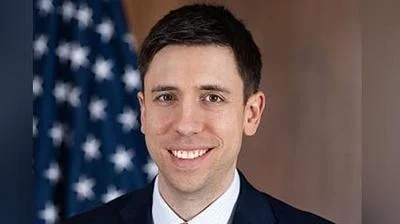Certain Illinois court cases point to the fact that grand jury subpoenas are not “secret” or prohibited from disclosure by the recipient, absent a court order sealing them. | Edgar County Watchdogs
Certain Illinois court cases point to the fact that grand jury subpoenas are not “secret” or prohibited from disclosure by the recipient, absent a court order sealing them. | Edgar County Watchdogs
Q: Are federal and state grand jury subpoenas subject to the Illinois Freedom of Information Act?
A: The short answer is “YES” subpoenas are public records once served on their recipient, absent any court order sealing the specific subpoena.
There have been numerous Illinois circuit court cases, appealed to the appellate courts dealing with the alleged secrecy of grand jury subpoenas, and the result has been the same: 1) there is no specific state or federal prohibition on a recipient of a grand jury subpoena from disclosing it, 2) subpoenas to a public body are subject to FOIA absent any court order sealing the record.
The Illinois State Bar Association even published an article on this subject (here).
If a public body denies a FOIA request for a copy of a grand jury subpoena, the proper recourse for the requester is to file suit in the circuit courts for violations of the Freedom of Information Act.
Certain Illinois court cases point to the fact that grand jury subpoenas are not “secret” or prohibited from disclosure by the recipient, absent a court order sealing them:
Better Government Association vs. Blagojevich (precedential):
“This case presents the question of whether the recipient of a federal grand jury subpoena, acting as a public official for the State of Illinois, has the discretion to refuse a request to disclose that subpoena, pursuant to the Illinois Freedom of Information Act (FOIA) (5 ILCS 140/1 through 11 (West 2006)). We conclude that in this case, the public official does not have such discretion.”
“Better Gov. Ass’n v. Blagojevich, 899 N.E.2d 382, 389 (Ill. App. 2008) (assuming that Rule 6(e) could block a state Freedom of Information Act request for specifically prohibited information, but concluding that grand jury secrecy did not protect a subpoena recipient).”
“Although no party raises the issue here, we note that there is no wholesale prohibition on disclosing federal grand jury subpoenas under FOIA. See Better Government Ass’n v. Blagojevich, 386 Ill.App.3d 808, 817, 326 Ill.Dec. 165, 899 N.E.2d 382 (2008) (holding that Governor was required to disclose federal grand jury subpoenas under FOIA).”
Chicago Tribune vs. College of DuPage – where the College of DuPage and its Foundation were ultimately ordered to produce the grand jury subpoena to the Chicago Tribune under FOIA and to pay the Chicago Tribune $500,000 in attorney fees incurred in their prosecution of the FOIA lawsuit.
Chicago Public Media vs. Illinois State Toll Highway Authority (nonprecedential) –
“Because there is no specific prohibition on a grand jury subpoena recipient disclosing the subpoena, and because we cannot expand FOIA’s exemptions by judicial proclamation, we reject the notion that defendant is entitled to redact the documents prior to production pursuant to section 7(1)(a). We cannot expand section 112-6, nor Federal Rule of Procedure 6, to encompass recipients of grand jury subpoenas. There is no federal or state law that “specifically prohibits” defendant from disclosing the full content of its subpoenas. See 725 ILCS 5/112-6(b) (West 1-21-0629 11 2020); Fed. R. Crim. P. 6(e) (West 2020). Therefore, we find that defendant cannot rely on section 7(1)(a) of FOIA to withhold or to redact the relevant documents.”
District 95 wrongly cited this case in their FOIA denial to me: In Appointment of Special Prosecutor, the court determined a federal subpoena was not to be released because a Judge had ordered the document sealed, and even distinguished this case from the BGA v Blago case citing the Judge’s sealing of the document in this case – not because the document was inherently secret.
“The federal grand jury law did not prohibit recipients of grand jury subpoenas, such as the governor, from disclosing their contents. And unlike here, no protective order was at issue in Blagojevich.”
We urge the School District to comply with our request in order to avoid further unnecessary legal expenses from our efforts to force compliance.
This story was originally published by Edgar County Watchdogs. Read the original HERE.





 Alerts Sign-up
Alerts Sign-up